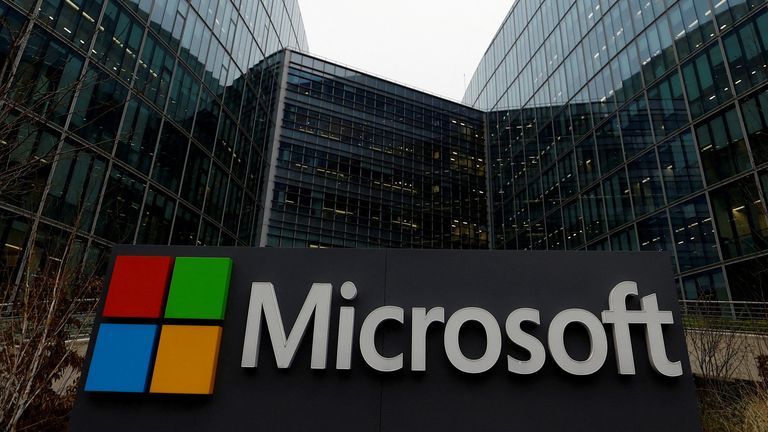Microsoft’s multibillion-dollar partnership with ChatGPT maker OpenAI could face investigation by the UK’s competition regulator.
The tech giant is a major investor and strengthened ties following the chatbot’s wildly successful launch in November 2022, committing another $10bn (£7.9bn) earlier this year.
It is reported to own a 49% stake in the company, which is at the forefront of artificial intelligence development.
The Competition and Markets Authority (CMA) wants to review whether the partnership has led to an acquisition of control, if a de facto merger has taken place, and if this could impact competition.
It has asked interested parties – which could include rivals like Google – to comment on the arrangement with a view to potentially launching an investigation.
Microsoft, which is thought to have played a role in the rapid reinstatement of OpenAI boss Sam Altman after his ousting by the board last month, has insisted the firms retain independence.
Mr Altman briefly joined Microsoft during his five-day exile from the company he co-founded in 2015, and the CMA said the saga had partly influenced its decision.
Upon his return, it was announced the Windows maker would take a non-voting position on OpenAI’s board.
Microsoft president and vice chair Brad Smith downplayed the arrangement, saying it was “very different from an acquisition such as Google’s purchase of DeepMind in the UK”.
Google bought that company in 2014, when there was far less mainstream scrutiny of the AI industry.
Now called Google DeepMind, it works on the search giant’s AI products including its Bard chatbot, which got a significant upgrade earlier this week.
Microsoft said it would work closely with the CMA on its review, while OpenAI has not commented.
The watchdog is closely monitoring the AI industry for potential competition or consumer protection issues.
It has already locked horns with Microsoft this year, having put up stiff resistance to the company’s record $69bn (£56bn) takeover of gaming giant Activision Blizzard.
The CMA finally approved the deal in October, almost two years after it was announced.
